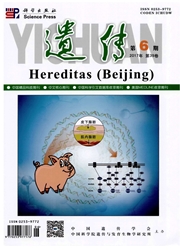

 中文摘要:
中文摘要:
包括生物和非生物在内的多种逆境胁迫是植物正常生长和作物产量提高的重要限制性因素。植物在长期的进化过程中,通过诱导表达某些抵御或防卫途径的关键基因来实现对胁迫的响应。研究表明,逆境胁迫不仅会诱导植物蛋白质编码基因的表达,也会诱导一些非蛋白质编码基因的表达,这类非蛋白质编码基因的表达产物在植物的生长、发育和应对逆境胁迫等过程中起到重要的调控作用。miRNA(dx分子RNA)就是这类非蛋白质编码基因产物中的重要类群,研究发现,多种逆境均会诱导miRNA的产生,其作用是通过引导目的基因mRNA的降解和阻止翻译过程来调控靶基因,最终通过形态或生理上的变化达到对逆境的适应。文章主要对植物逆境胁迫下miRNA的研究,特别是逆境胁迫诱导miRNA的产生、靶基因调控以及miRNA在植物适应逆境胁迫过程中的作用进行了综述,同时,文章还对在逆境胁迫下植物miRNA的研究方法进行了初步的探讨。
 英文摘要:
英文摘要:
Biotic and abiotic stresses influence plant growth and cause great loss to crop yield. In the long course of evolution, plants have developed intricate biological mechanism to resist stressed conditions. Under various stressed conditions, not only the protein-coding genes, but also the non-protein-coding genes were induced for response. More and more researches showed that the transcripts of these non-protein-coding genes played important role in regulation of gene expression. miRNA is one of the groups in these no-coding regulatory small RNAs. Recent findings showed that in order to resist the biotic and abiotic stresses, expression of microRNA (miRNA) genes will be induced and their transcripts (miRNAs) can regulate gene expression by guiding target mRNA cleavage or translation inhibition. This paper focused on the advances of plant miRNAs research in stressed conditions, especially induced expression of miRNA and target gene regulation and its role on adaptation under stressed conditions. Then, the methods of miRNA researches in stressed environments are discussed.
 同期刊论文项目
同期刊论文项目
 同项目期刊论文
同项目期刊论文
 期刊信息
期刊信息
